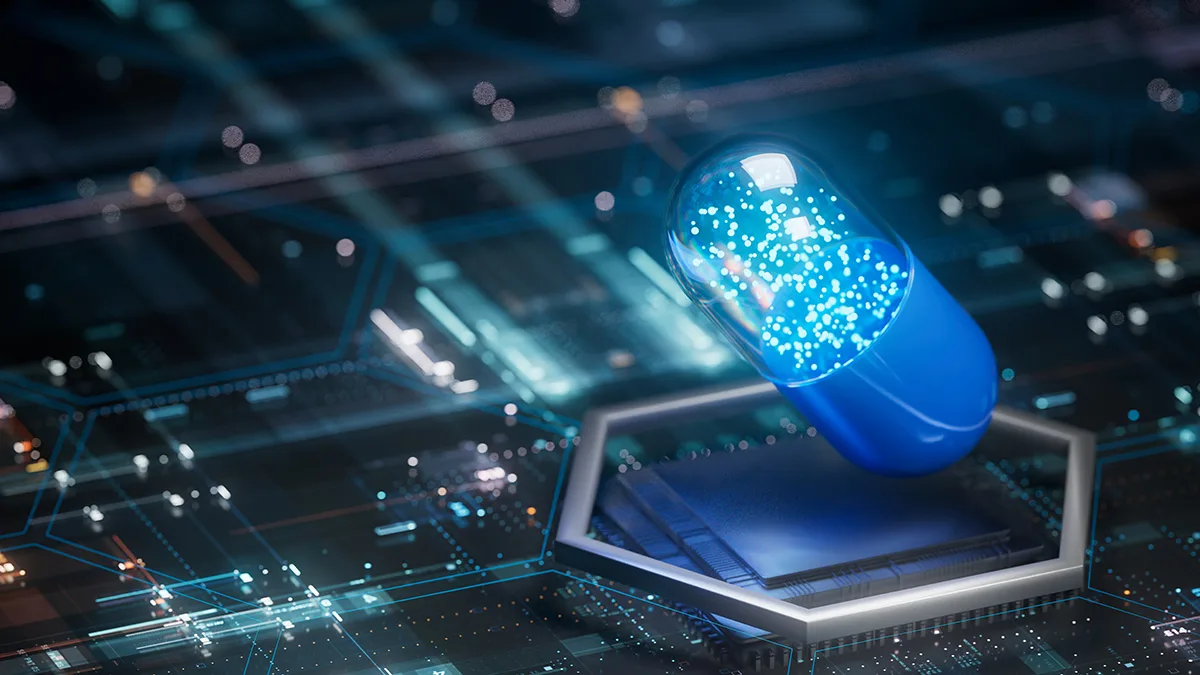
Overview
Most biomedical researchers agree that the promise of AI for the future drug discovery is likely to be extraordinary. What can we expect in the next decade?
Expectations for the use of AI to advance therapies
Speed. Efficiency. Value. Those are the benefits of artificial intelligence (AI) that innovators have already reaped. Still to be sorted are the regulation and governance of AI use and the diversification of data.
Nonetheless, most biomedical researchers agree that its promise for the future of drug discovery is likely to be extraordinary. A panel of scientists shared their expectations for AI’s impact on drug discovery during the next decade at a recent seminar co-hosted in June 2024 by Cure and the New York Academy of Sciences. Here's their five predictions.
1. Machine learning algorithms will likely become more diverse
AI algorithms are only as valid as the data used to create them, and much of that data are homogenous. That makes the algorithms less useful for the development of drugs for diseases that affect people from diverse backgrounds.
Maria Luisa Pineda, PhD, Co-Founder and CEO of Envisagenics, cited the example of when facial recognition systems were developed for the Transportation Security Administration and testers realized that the algorithms had been developed primarily by Caucasian engineers. As a result, the algorithms had a hard time recognizing anyone with color.
"Not only is it important to curate diverse data, but it is also important to know who develops the algorithm and their backgrounds," said Pineda. "How do we get all these data from different people? Diseases are global. They happen to absolutely every single person."
"You have to have data that spans many backgrounds. That's absolutely key for building AI to prove that it works for everyone," added Thomas Fuchs, DrSc, Co-Director of the Hasso Plattner Institute for Digital Health and Dean of Artificial Intelligence and Human Health at the Icahn School of Medicine at Mount Sinai.
Expanding data access also is gaining more attention. "As a nonprofit, we need the best data set, and the only way to get it is to collaborate with people," said Grant Mitchell, MD, MBA, co-founder of the drug repurposing nonprofit Every Cure. "That allows us to go after drugs that we don't own and diseases that the pharmaceutical industry neglects, as well as populations who get neglected."
2. Greater attention will be paid to regulation and reimbursement
Governments need to be involved in AI development to standardize the platforms. But that's not the only challenge. "Regulation is important, but regulation is actually not the main hurdle. At the end of the day, the main hurdle is reimbursement," explained Fuchs. AI costs money. Payors reimburse for the new drug that was developed, but not for the AI technology.
3. There may be an increase in natural computing
"There are amazing things we can do with in silico and von Neumann digital architecture to synthesize perfect simulators and very big libraries," predicted George Church, PhD, who leads Synthetic Biology at Harvard's Wyss Institute and has co-founded several biotech companies using AI for drug discovery.
"We're going to see a lot of that going forward, especially in biology and medicine, where you can actually make 10 trillion things cheaply. This is a field where we can input lots of data and go through loops of analysis and synthesis."
4. AI has the potential to replace human clinical trials (But will it?)
Depending on the data used to create the algorithms and how they are applied, it's theoretically possible that drugs could be evaluated using AI alone, without having to recruit patients for clinical trials.
"In 100 years, we may look back and say, 'My God, I can't believe we tested drugs on humans! That was crazy that we did that,'" Mitchell speculated. "We'll have perfect simulation models like the ones George was talking about, where we have a perfect replication of human biology in a model. We'll put in an input and the output we get is always going to be accurate."
But we're not there yet. "In the world we live in now, we have imperfect models of human biology. We put in inputs and they make predictions that might be right or might not be," Mitchell continued. "So, what do we do between that prediction and the validation? The only way to do it now is to evaluate a drug in the human body and see if it works."
AI may be useful for scouring the medical literature for empiric evidence more quickly than any humans could do, and that could be helpful. "But we're not at the point yet where we can just say okay, we trust the prediction. We've ultimately got to assess the drugs in humans," Mitchell added.
5. AI itself may invent new technologies
AI systems can also talk to each other. That can have negative effects — such as hospitals using AI to write letters to insurance companies about claims, only to have the insurance companies use AI to refute those letters, with humans only reading the summaries generated by these exchanges. But AI can also promote technology development.
"We're going to start seeing AI creeping into technology development," said Church. "When we get into a self-fueling cycle where AI is inventing new technologies — which can then feed it more and better data — then we're going to see a true explosion."








